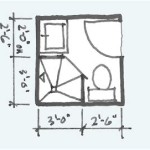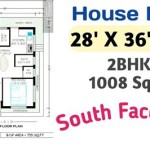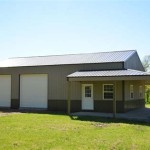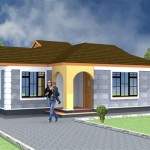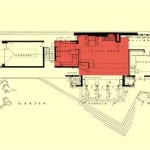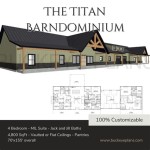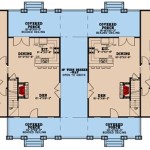Home Plans with Finished Basement
A finished basement can add significant value and living space to your home. Whether you're looking to create a cozy family room, a home gym, or a guest suite, there are countless possibilities for a finished basement. Here are some key considerations and benefits of incorporating a finished basement into your home design:
Increased Living Space: A finished basement instantly expands your living space, providing extra room for relaxation, entertainment, or other activities. This is especially beneficial for families with growing children or those who need additional space for hobbies or home offices.
Added Value: A well-finished basement can significantly increase the resale value of your home. Buyers appreciate the extra space and functionality that a finished basement offers, making it a highly desirable feature.
Energy Efficiency: Insulating and finishing your basement can help improve the energy efficiency of your home. By sealing air leaks and adding insulation, you can reduce heat loss during the winter and keep your home cooler in the summer.
Increased Storage: A finished basement provides ample storage space for seasonal items, overflow belongings, and anything else you need to keep out of sight. With built-in shelves, drawers, and closets, you can maximize space utilization.
Versatile Design Options: A finished basement offers endless design possibilities. You can create a cozy entertainment space with a home theater and seating area, a dedicated playroom for kids, a guest bedroom with a private bathroom, or a combination of these options. The possibilities are limited only by your imagination.
When planning a finished basement, consider the following factors:
Ceiling Height: Ensure there is sufficient ceiling height for comfortable living and adequate ventilation. The minimum recommended height is around 8-9 feet.
Natural Light: Incorporate windows or a walk-out door to provide natural light and ventilation. This will make the basement feel brighter and less enclosed.
Flooring: Choose durable and moisture-resistant flooring options such as vinyl, tile, or laminate. Avoid carpeting, as it can be susceptible to moisture and mold.
Heating and Cooling: Plan for proper heating and cooling systems in the basement to ensure a comfortable temperature year-round. Consider radiant floor heating or a dedicated HVAC system.
Electrical and Plumbing: Run adequate electrical and plumbing lines to support the intended use of the basement. Include sufficient outlets, lighting fixtures, and plumbing for any appliances or amenities.
Safety: Install smoke and carbon monoxide detectors throughout the basement for safety. Consider an egress window or door for emergency evacuation.
Incorporating a finished basement into your home design is a smart investment that adds value, expands living space, and offers countless design possibilities. By carefully considering the above factors, you can create a basement that meets your unique needs and enhances your overall home experience.

How To Plan For A Finished Basement Chiefblog

Craftsman Ranch Home Plan With Finished Basement 6791mg Architectural Designs House Plans

Finished Basement Floor Plans Http Homedecormodel Com Layout

House Plans With Basements Dfd Blog

Basement Floor Plans Types Examples Considerations Cedreo

How To Create A Great Living Space For Finished Basement Layout

Craftsman Ranch Home Plan With Finished Basement 6791mg Architectural Designs House Plans

Finished Basement Layout Idea

Basement Floor Plans Types Examples Considerations Cedreo

Stylish And Smart 2 Story House Plans With Basements Houseplans Blog Com

